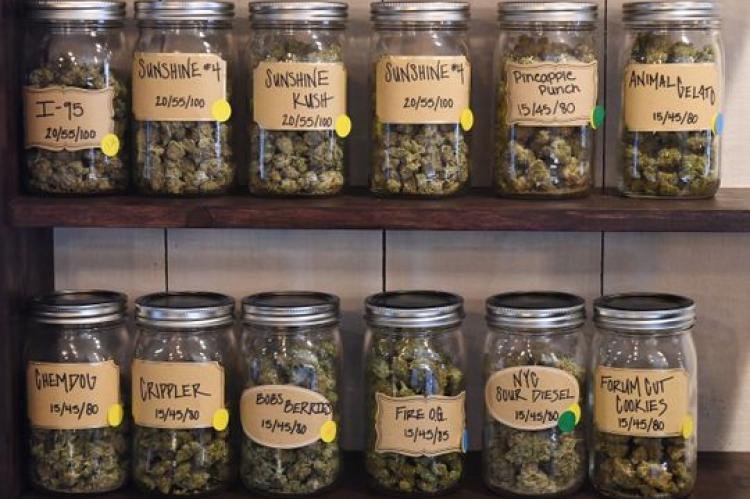Chicago’s first recreational marijuana store just got OK’d — but you might not be able to buy weed there on Jan. 1
Cresco Labs was awarded licenses to sell recreational marijuana from its five existing Illinois stores starting in January, but it’s uncertain whether sales will begin in Chicago Jan. 1.
Black Caucus Chairman Ald. Jason Ervin, 28th, introduced a proposed ordinance Wednesday that would push back the start of marijuana sales in the city from Jan. 1 to July 1. The proposal followed concerns from African American aldermen over a dearth of minority ownership in the potentially lucrative industry.
After delaying a vote Tuesday on Mayor Lori Lightfoot’s proposed zoning rules for dispensaries, the aldermen reached a compromise, and the ordinance passed City Council Wednesday morning.
A later start date for sales would be a significant setback for cannabis companies jockeying to operate in what’s expected to be the biggest marijuana market in the state. Each of Illinois’ 55 dispensaries can apply to sell recreational weed from their existing storefronts and to open a second location.
“The whole foundation of this legislation is social equity and social justice, that’s the only reason that it passed,” said Cresco spokesman Jason Erkes. "To delay things because they want more isn’t giving the processes that were put in the legislation a chance to even prove themselves.”
Cresco is the second marijuana company to get the state’s OK to sell recreational marijuana from its existing facilities. The state issued a sixth license to Mapleglen Care Center in Rockford.
In Chicago, the state has approved only one dispensary, Cresco’s MedMar Lakeview, to sell recreational weed.
Cresco also plans to open several more stores in the city. The company also operates three growing facilities in the state, all of which are licensed to grow weed for recreational sales.
Operators were waiting for Lightfoot’s zoning ordinance to move forward before finalizing plans for stores in Chicago. The ordinance lays out where marijuana dispensaries will be allowed.
Lightfoot said Wednesday that she would work with aldermen on addressing their equity concerns.
The African American aldermen have fair concerns about minority ownership, said Seke Ballard, founder and CEO of Good Tree Capital, a black-owned business that provides financing to cannabis companies.
Illinois’ recreational marijuana law has provisions meant to ensure people from areas most affected by marijuana arrests get help entering the industry. For those that qualify, the state offers a discounted application fee, grants and mentoring.
Some of the money for those services comes from licensing fees paid by existing cannabis companies.
Ballard said the problem is that many of the people he has worked with who would qualify for the state’s financial help don’t know it’s available.
“That acts as a massive disincentive for them to apply to begin with,” Ballard said. “They’ve got no idea that this legislation has all of those carve-outs for them.”
- Log in to post comments

